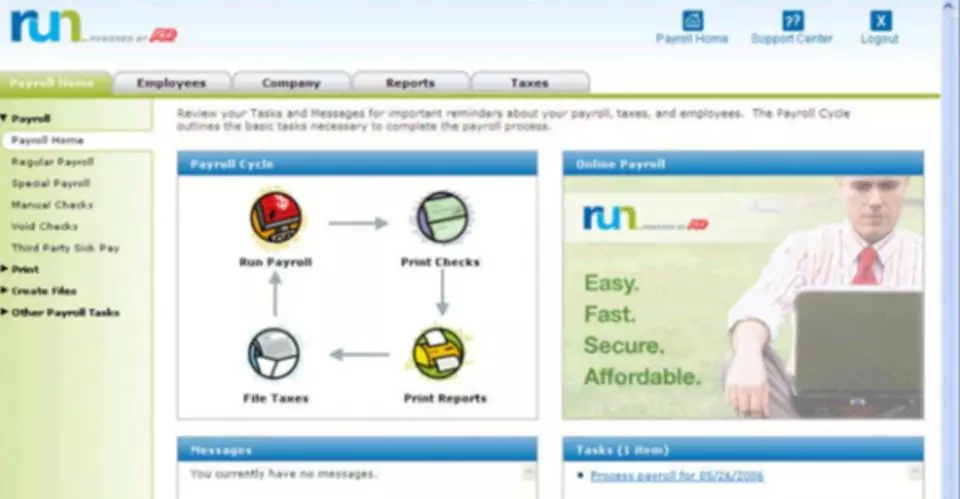Content

Working with atax professional can take out the guess work when it comes to which types of insurances are considered a business expense and can be written off as a deduction. And if you have any financial questions, the tax professional can likely answer them. Further, insurance expense unless and until additional guidance provides otherwise, an S corporation with a 2-percent shareholder-employee healthcare arrangement will not be required to file IRS Form solely as a result of having a 2-percent shareholder-employee healthcare arrangement.
- Accumulation Period – period of time insured must incur eligible medical expenses at least equal to the deductible amount in order to establish a benefit period under a major medical expense or comprehensive medical expense policy.
- According to an analysis of statutory results obtained by S&P Global Market Intelligence as of March 21, the P&C industry’s expense ratio fell by essentially 100 basis points to 26.5% in 2021 from 27.5% at the end of 2020.
- As mentioned above, the premiums or payment is recorded in one accounting period, but the contract isn’t in effect until a future period.
- Compliance with solvency and other standards is determined using financial documents prepared in accordance with Statutory Accounting Principles.
- Assumed Reinsurance – the assumption of risk from another insurance entity within a reinsurance agreement or treaty.
Prepaid insurance is usually considered a current asset, as it becomes converted to cash or used within a fairly short time. But if a prepaid expense is not consumed within the year after payment, it becomes along-term asset, which is not a very common occurrence. The payment of the insurance expense is similar to money in the bank—as that money is used up, it is withdrawn from the account in each month or accounting period. These insurance premiums are the payments that must be made in order to acquire the policy, and they are often paid in advance and referred to as prepaid insurance policies. Thus, insurance contracts are almost inevitable for a smooth life and business.
Deloitte User?
Source of collecting funds– It allows for creating a pool of funds that can be parked at a proper place and create a steady flow of income, which can help cover the catastrophe of the insured person. The amount of premium is normally within the budgets of normal earning person & hence, paying the premium is not that difficult.
Buyers of real and personal property and mortgage lenders rely upon the coverage to protect them against losses from undiscovered defects in existence when the policy is issued. Specified/Named Disease – policies that provide benefits only for the diagnosis and/or treatment of a specifically named disease or diseases. Short-term Disability – a company standard defining a period of time employees are eligible for short-term disability coverage, typically for 2 years or less.
Operating Section of the Cash Flow Statement
Commercial property insuranceto help protect your owned and rented business property like your equipment, building and tools. To learn more about business tax deductions, you can work with a tax professional. An ordinary business expense is common and accepted in your business or industry. A necessary business expense is helpful and appropriate for your business or industry. With time fraud became an important area where insurers can save money on claims.
- Administration fees usually are deducted from your policy value once a month.
- Policyholders can renew coverage shortly before the expiry date on the same terms and conditions as the original insurance contract.
- Individual Annuities- Immediate Non-Variable – an annuity contract that provides for the fixed payment of the annuity at the end of the first interval of payment after purchase.
- Blanket coverage – coverage for property and liability that extends to more than one location, class of property or employee.
Although its expense ratio can be stellar, the overall profitability of an insurance company is affected by its loss ratio, investment income, and other gains and losses. A prepaid insurance expense is the amount of premiums paid for insurance that are recorded in the balance sheet as assets at the time of payment because coverage has not started yet. As soon as coverage begins, a portion of the amount is recorded as expense until each payment is used up and these assets are eventually turned into expenses. Policy Dividend – a refund of part of the premium on a participating life insurance policy.
IAS 39/IFRS 4 – Financial guarantee contracts and credit insurance
It permits financial services companies to merge and engage in a variety of new business activities, including insurance, while attempting to address the regulatory issues raised by such combinations. Employment Practices Liability Coverage – liability insurance for employers providing coverage for wrongful termination, discrimination, or sexual harassment of the insured’s current or former employees.
What are accrued expenses?
Accrued expenses are those incurred for which there is no invoice or other documentation. They are classified as current liabilities, meaning they have to be paid within a current 12-month period and appear on a company's balance sheet.
They must constantly invest in new technologies to harness the wealth of available internal and external data to gain better insights and compete in shifting markets. Changing customer expectations, brought about by shifting demographics, preferences, and buying patterns, are driving product evolution and the need for supporting operational shifts.
The NAIC provides expertise, data, and analysis for insurance commissioners to effectively regulate the insurance industry and protect consumers. Discover tools and resources to help you understand different types of insurance, claims processes, and practical tips to help support you through every stage of your life. We provide tools and resources to help regulators set standards and best practices, provide regulatory support functions, and educate on U.S. state-based insurance regulation. Using non-uniform accounting policies for the insurance liabilities of subsidiaries. Roperty and casualty insurers recorded their lowest expense ratio in five years in 2021. For a list of insurances that can and can’t be written off as a business expense, review the IRS guidelines. There are generated by the marketing system and marketing operations including agents, brokers, producers, or sales representatives and the administrative staff who manage and support a new business effort.

The company must conform to state regulatory standards to legally sell insurance products in that state. Agent – an individual who sells, services, or negotiates insurance policies either on behalf of a company or independently. Adverse Selection – the social phenomenon whereby persons with a higher than average probability of loss seek greater insurance coverage than those with less risk. Advance Premiums – occur when a policy has been processed, and the premium has been paid prior to the effective date.
Property/Liability/Casualty Insurance
The policyholder selects the accounts into which the premium payments are to be made. Underwriting – the process by which an insurance company examines risk and determines whether the insurer will accept the risk or not, classifies those accepted and determines the appropriate rate for coverage provided. Pure Premium – that portion of the premium equal to expected losses void of insurance company expenses, premium taxes, contingencies, or profit https://www.bookstime.com/ margin. Occurrence – an accident , including injurious exposure to conditions, which results, during the policy period in bodily injury or property damage neither expected or intended from the standpoint of the insured. Loss Reserves – an estimate of liability or provision in an insurer’s financial statement, indicating the amount the insurer expects to pay for losses incurred but not yet reported or reported claims that haven’t been paid.
IFRS 4 is the first guidance from the IASB on accounting for insurance contracts – but not the last. The Board issued IFRS 4 because it saw an urgent need for improved disclosures for insurance contracts, and some improvements to recognition and measurement practices, in time for the adoption of IFRS by listed companies throughout Europe and elsewhere in 2005. This article provides general information, and should not be construed as specific legal, financial, insurance, tax or accounting advice.







































